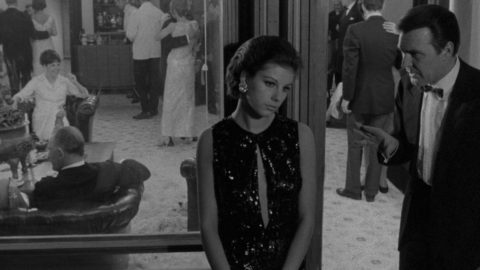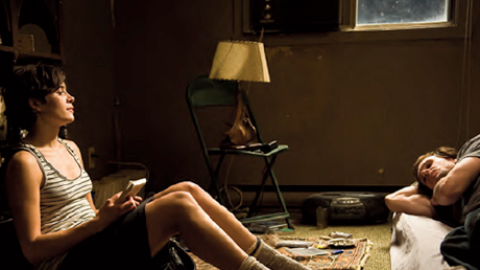By Kristin M. Jones in the March-April 2016 Issue
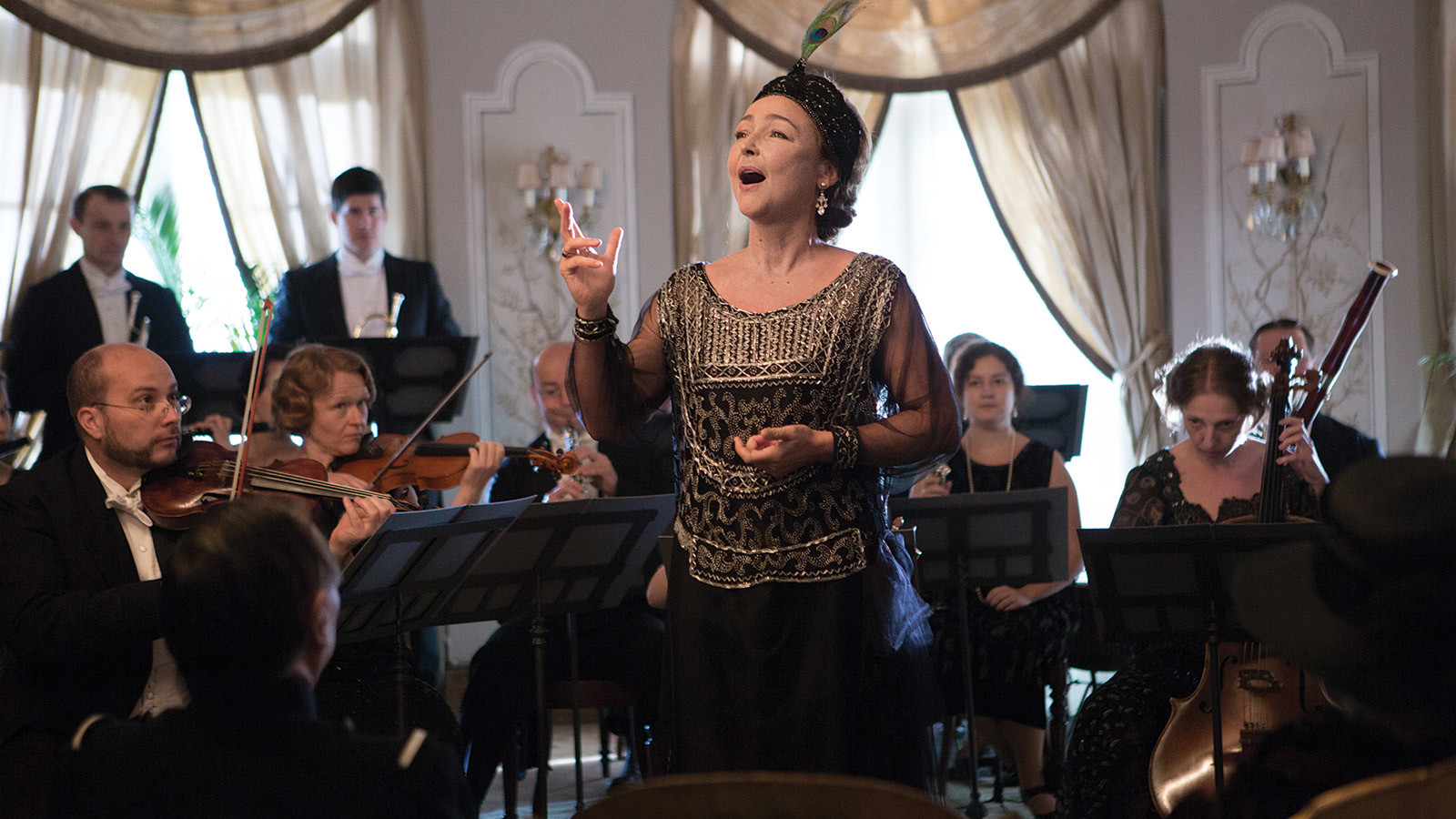
Review: Marguerite
(Xavier Giannoli, France/Czech Republic/Belgium, 2015)
Midway through Marguerite, the heroine (Catherine Frot) sets off for a concert valiantly carrying a pitchfork decorated with red, white, and blue bunting that expresses her fierce longing for beauty and freedom. We have already heard her sing a notoriously difficult aria from Mozart’s The Magic Flute—throughout which she was breathtakingly off-pitch, her phrasing execrable, her tone shrill—at a charity event she hosted where hers was the crowning performance.
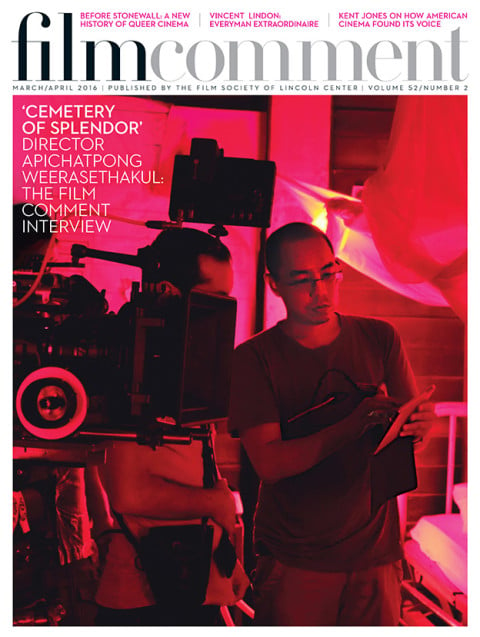
From the March-April 2016 Issue
Also in this issue
Marguerite was initially inspired by the poignant life of Florence Foster Jenkins, a staggeringly untalented American amateur opera singer who performed for members of her wealthy social circle and organized tableaux vivants, oblivious to her musical shortcomings. (Two other Jenkins-inspired film projects currently in the works are Stephen Frears’s biopic starring Meryl Streep and a documentary.) Giannoli has set his tragicomic fictional tale in France in the 1920s, allowing Marguerite to encounter bohemian young artists who are awed by her audacity. These include the journalist Lucien Beaumont (Sylvain Dieuaide) and the monocle-wearing poet Kyrill Von Priest (Aubert Fenoy), who crash Marguerite’s party, and the talented singer Hazel (Christa Théret).
When Lucien writes a review wittily extolling the strange intensity of Marguerite’s singing, observing that she “seems to be trying to exorcise an inner demon,” Marguerite welcomes it as a perceptive rave and eagerly participates in an event he and Kyrill have organized. After it turns out to be Dadaist provocation—complete with war film footage projected on her costume—her hypocritical upper-class peers desert her. Unfazed, and dazzled by performing for the public, she plans a major recital, jam-packed with ambitious arias.
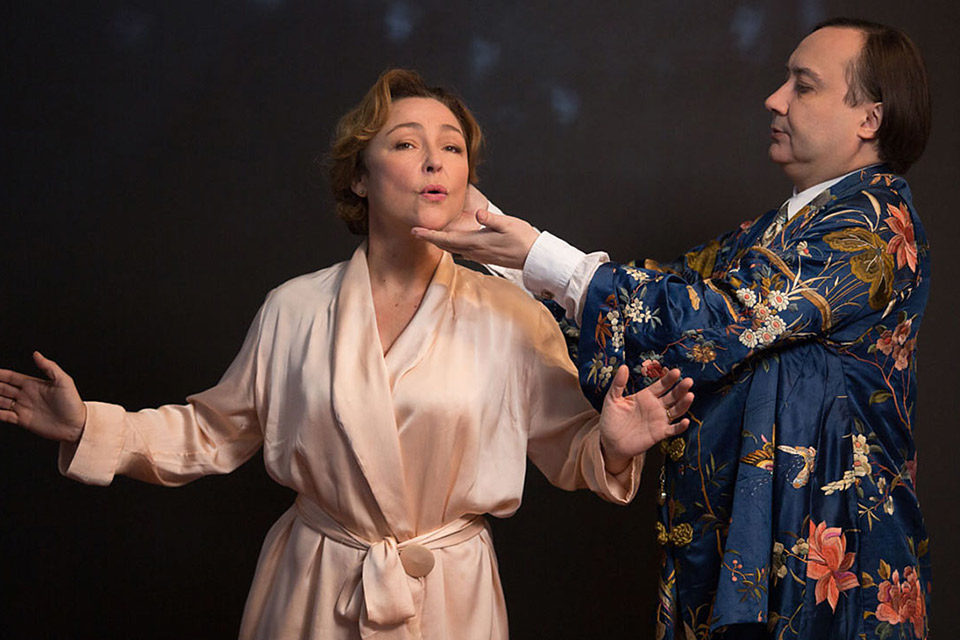
Marguerite
Frot’s deeply touching performance makes it believable that Marguerite’s husband Georges (André Marcon) would indulge her eccentricity while being painfully embarrassed. Georges too has abandoned her for a mistress, but the film strikes a false note in repeatedly emphasizing his neglect, its effects, and his shamefaced reaction when he is reproached. A subplot involving an attraction and period of estrangement between Hazel and Lucien echoes the relationship between the Dumonts, but Marguerite is least interesting as a portrait of a marriage.
Yearning to be seen as well as heard, Marguerite delights in being photographed wearing costumes for various roles. The images resemble depictions of operatic divas, but in their narcissism they also recall the photographic self-portraits commissioned by the 19th-century beauty Countess de Castiglione, who posed as characters such as the Queen of Hearts, reliving past appearances at costume balls and in tableaux vivants and imaginatively reworking her image as she slipped into obsession, old age, and insanity. Marguerite falls into a fascinating lineage of women unselfconsciously trying to control their image, but in an unsettling twist the Dumonts’ enigmatic chauffeur and butler, Madelbos (Denis Mpunga), who shoots the photographs, is presented as a real artist.
Amid music on the soundtrack by composers ranging from Handel and Purcell to Poulenc and Honegger, Marguerite’s voice is like an unwitting act of vandalism, joined in its ugliness only by the shrieks of her peacock, Caruso. Surreal touches echo her uncanny singing, including a giant eyeball on the lawn and, inside the house, masks, costumes, and a pet python. Marguerite has numerous haunting moments, such as a scene in which the heroine playfully bows to an opera house just before its lights are extinguished, followed by a shot of shadow puppets in an opium den. The film’s warm-toned, high-contrast visuals delicately reflect her imaginary world, as does the recurring motif of electric light bulbs. Beneath the antic plot and sentimental portrayal of her marriage is a moving portrait of a woman who searches for an audience and loses herself.
Kristin M. Jones is a writer based in New York, covering art and film for publications including FILM COMMENT, Frieze, and the Wall Street Journal.



